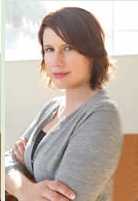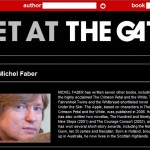 A literary journalist (who shall here rename nameless) overhead at the Wigtown book festival bemoaning the fact there were ‘no good writers under the age of forty-five in Scotland’, and a frustration at a lack of literary magazines exhibiting new Scottish writing, were the key factors which propelled editors Adrian Searle and Colin Begg to establish Scottish literary magazine Gutter.
A literary journalist (who shall here rename nameless) overhead at the Wigtown book festival bemoaning the fact there were ‘no good writers under the age of forty-five in Scotland’, and a frustration at a lack of literary magazines exhibiting new Scottish writing, were the key factors which propelled editors Adrian Searle and Colin Begg to establish Scottish literary magazine Gutter.
Both editors recently visited Stirling University’s Publishing Studies centre to share their experiences about establishing the magazine and to provide an insight into the world of publishing.
As graduates from the University of Glasgow’s Masters in Creative Writing course, both Adrian and Colin highlighted the fact that beyond being published in the course’s annual anthology there were few outlets in Scotland for the publication of new writing with the demise of literary magazines such as Cutting Teeth and Cencrastus.
Gutter was established to fill this void. With the proviso to promote new and exciting Scottish writing, the magazine showcases emerging and established writing talent side by side. Published twice yearly, with the first issue launched in August 2008, recently published writers have included Alan Bissett, Patricia Ace and University of Stirling Royal Literary Fund Fellow Linda Cracknell.
Plans for the future include the publishing of a Gutter anthology and the continuation of Gutter events. This year saw a Gutter event ‘McSex’ at the Edinburgh International Book Festival, a night which explored the tradition of eroticism in Scottish Literature – think smutty prose and nipple tassels (the smutty prose from the writers/nipple tassels on the burlesque dancer, although the opposite could have been interesting!), and events at the National Library of Scotland and the Glasgow Aye Write! Book Festival.
With the most recent issue full of stories from Scottish writers such as Louise Welsh, Zoe Strachan and Ewan Morrison I think that particular literary critic’s assertion was perhaps slightly misguided; there are certainly lots of good writers in Scotland under forty-five… Gutter is proof of that.
Lauren Nicoll


